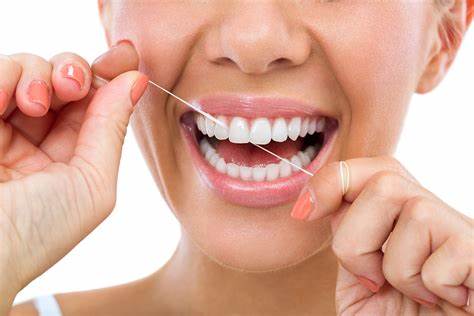
Exploring Flossing Alternatives: What's Right for You
Water Flossers
Water flossers, also known as oral irrigators, have gained popularity as a convenient and effective alternative to traditional flossing. They use a stream of pressurized water to remove debris and plaque from between your teeth. Here are some key advantages of using water flossers:
Gentle on gums: Water flossers are less likely to cause gum irritation compared to string floss, making them a good choice for individuals with sensitive gums.
Easy to use: Many people find water flossers easier to handle and more user-friendly than traditional floss. They're especially beneficial for individuals with dexterity issues.
Effective at removing debris: Water flossers can effectively dislodge food particles and plaque from hard-to-reach areas.
Customizable settings: Most water flossers come with adjustable pressure settings, allowing you to control the intensity of the water stream.
Interdental Brushes:
Interdental brushes are small, bristled tools designed to clean between teeth. They are available in various sizes to accommodate the gaps between your teeth. Here are some advantages of using interdental brushes:
Precision cleaning: Interdental brushes are excellent for targeting specific areas, especially if you have larger gaps between your teeth.
Easy to maneuver: They are straightforward to use and require minimal dexterity.
Reusable: Many interdental brushes are reusable, reducing waste.
Dental Picks and Soft Picks:
Dental picks, also known as dental sticks or soft picks, are small, pointed tools with soft bristles. They are designed to clean between teeth and along the gumline. Here's why you might consider using dental picks:
Convenience: Dental picks are portable and can be carried in your pocket or purse for on-the-go cleaning.
Ideal for tight spaces: If you have narrow spaces between your teeth, dental picks can navigate these areas with ease.
Gentle on gums: The soft bristles are less likely to cause gum irritation.
Floss Holder or Flosser Picks:
Floss holder or flosser picks are devices that hold a short strand of floss, making it easier to reach between teeth. They are particularly helpful for individuals who struggle with traditional floss. Here are the advantages of using floss holder picks:
Easier handling: Flosser picks provide a comfortable grip, making it simpler to floss effectively.
Disposable or reusable: They are available in both disposable and reusable options, catering to individual preferences.
Electric or Battery-Powered Flossers:
Electric or battery-powered flossers are designed to make flossing easier and more efficient. They typically come with different attachments and settings for various cleaning needs. Here's why they might be the right choice for you:
Efficiency: Electric flossers do the work for you, making the flossing process quicker and more effective.
Multiple settings: You can adjust the settings to suit your comfort and cleaning requirements.
Built-in timers: Some electric flossers come with timers to ensure you floss for the recommended duration.
Choosing the Right Flossing Alternative for You:
Selecting the right flossing alternative depends on your individual preferences, oral health needs, and any specific challenges you may face. Here are some factors to consider:
Gaps between teeth: If you have wide spaces between your teeth, interdental brushes or dental picks may be your best option.
Gum sensitivity: Water flossers or dental picks with soft bristles are gentler on the gums.
Dexterity issues: If you struggle with traditional floss due to dexterity issues, floss holder picks or electric flossers may be more convenient.
Portability: If you're frequently on the go, consider dental picks or flosser picks for their convenience.
Cost: Some flossing alternatives may have a higher initial cost, so factor in your budget.
Personal preference: Ultimately, your choice should align with what feels most comfortable and effective for you.
Remember that while these alternatives can be effective, they should not replace regular dental check-ups and professional cleanings. Consult with your dentist to determine the best flossing method for your specific oral health needs.
In conclusion, flossing is a vital part of maintaining good oral health, and there are several alternatives to traditional string floss that can make the process easier and more effective. Whether you opt for a water flosser, interdental brushes, dental picks, floss holder picks, or an electric flosser, the key is to find what works best for you and helps you maintain a consistent flossing routine. Good oral hygiene is a crucial part of your overall health, so don't neglect it.
